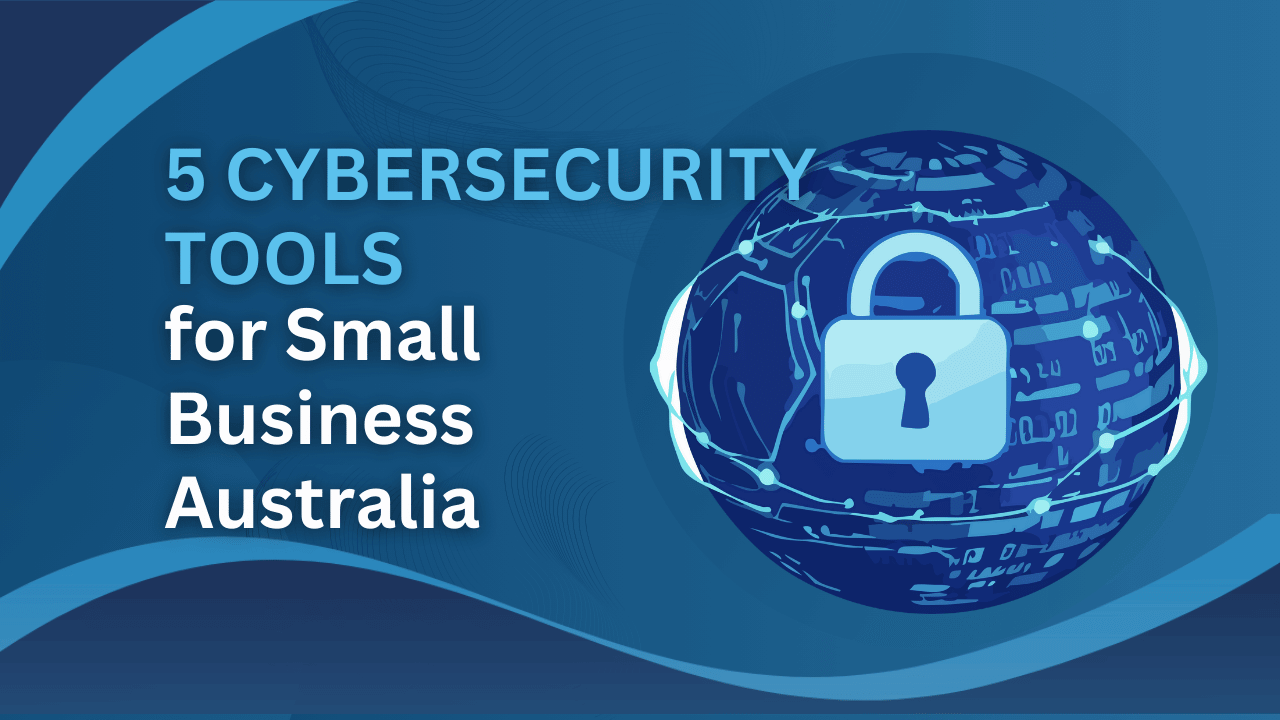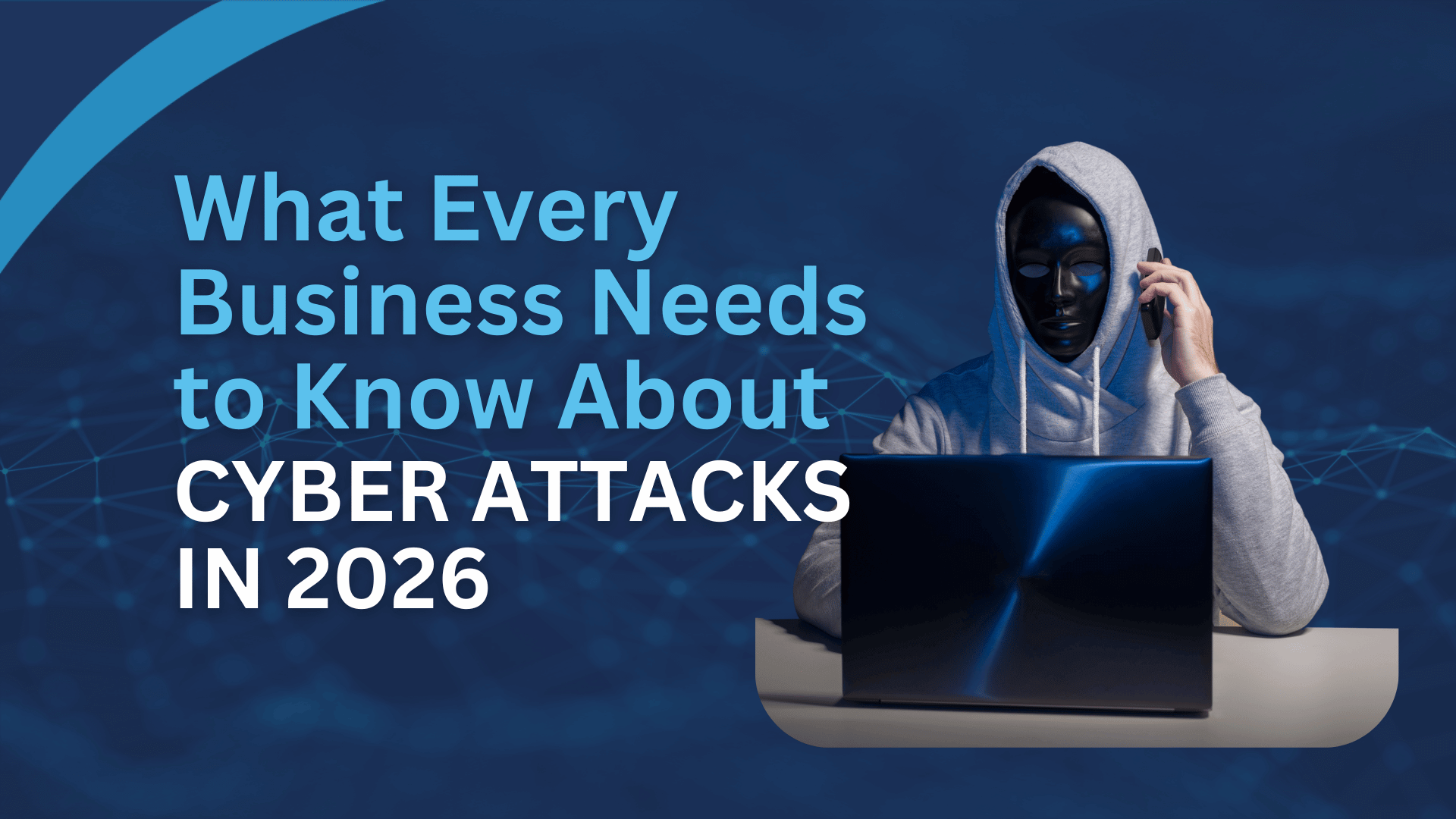
In today’s interconnected world, businesses rely on multiple applications and systems to operate efficiently. Managing multiple usernames and passwords can be tedious and time-consuming for employees. Single Sign-On, or SSO, can alleviate this problem by allowing users to access multiple applications with just one set of login credentials. In this article, we will explore what Single Sign-On is, how it works, and why it matters for small and medium businesses.
What is Single Sign-On (SSO)?
Single Sign-On is a system that enables users to log in to multiple applications and platforms using the same set of login credentials.
Instead of requiring different usernames and passwords for every application, SSO allows users to enter their credentials once and gain access to all supported systems.
SSO typically involves a centralised identity provider (IdP) that manages user identities and provides access to authorised systems and applications.
How does SSO work?

Think of SSO like a key to your house. Once you unlock the front door, you can access all the rooms inside without needing a separate key for each one. Similarly, with SSO, you log in once through a service known as an identity provider. This is like unlocking your front door.
Now, instead of a physical key, SSO uses digital “protocols” (think of them as rules) like SAML, OAuth, or OpenID Connect. These protocols help verify that you are who you say you are.
Once you’re logged in, the identity provider creates a security token, which is like a digital badge that proves you’ve been checked and cleared. As you move from one app or system to another, this token shows you’re allowed in without having to log in again and again. This makes your digital life much more seamless and secure!
Types of SSO
There are three main types of SSO:
1.Web SSO
It simplifies access to cloud-based apps, like Microsoft Azure or Okta.
2.Enterprise SSO
It streamlines access to on-premise applications, such as IBM Security Access Manager.
3.Federated SSO
It allows users from different organisations to access resources, often using standards like SAML or OAuth.
Why is SSO important for Australian businesses?
For small and medium-sized businesses (SMBs) in Australia, implementing Single Sign On offers a range of specific benefits tailored to the unique needs and challenges they face. As Australian businesses navigate a landscape filled with evolving privacy laws, stringent regulations, and a growing wave of cyber threats, SSO becomes an essential tool to enhance cybersecurity and streamline operations.
Benefits of SSO for Australian SMBs
Single Sign-On provides several benefits for businesses. It enhances security by reducing the risk of weak or stolen passwords. SSO can enforce strong authentication methods like multi-factor authentication (MFA). It simplifies user management, increases productivity, and aids compliance with regulations such as HIPAA or GDPR. There is more information about the benefits of SSO:
Simplified User Authentication
With Single Sign-On, your employees can log in once to gain access to multiple applications, services, and websites without the need to remember multiple passwords. SSO provides a single pathway to access multiple systems with a single sign-on, increasing convenience for users. As a result, SSO can save valuable time for employees and reduce the overall cost of IT support, which is a significant benefit for SMBs.
Improved Security
According to a recent report by the Australian Cyber Security Center (ACSC), almost half of Australian SMBs experienced one cyber attack or more in the last year. Cyber threats to SMBs are on the rise, and the cost of data breaches can be extremely high. With SSO, your organisation’s security is enhanced significantly because users only have to remember one password, reducing the likelihood of weak and vulnerable passwords. Furthermore, SSO allows you to enforce a single sign-on security policy that requires multi-factor authentication (MFA) across all systems. As a result, cybercriminals will have a harder time gaining access to your sensitive data.
Improved Compliance

Compliance with Australian privacy laws and regulations is crucial. As an SMB owner, you must ensure that your organisation is compliant with industry regulations such as the Australian Privacy Act 1988 and the Payment Card Industry Data Security Standard (PCI DSS). With SSO, you can guarantee secure access to sensitive data, ensuring your organisation adheres to regulatory compliance guidelines.
Centralised User Management
Managing user access to multiple systems can be a nightmare for IT teams. SSO eliminates the need for administering and maintaining separate user accounts for every application. With SSO, IT administrators can centrally manage user access, significantly streamlining the provisioning of new users and deprovisioning of previous employees.
Cost-Effective
Implementing SSO can save costs in the long run. According to a report by Gartner, up to 30% of help desk calls are password-related, and password resets can cost up to $70 per incident. SSO can streamline password management and free up help desk resources, saving your organization time and money.
How to choose the right SSO solution for your Australian SMB?
When it comes to selecting an SSO solution for your small or medium-sized business in Australia, a few crucial factors should be kept in mind:
- Business Size: SSO solutions come in different shapes and sizes, some are built specifically for large corporations, while others are tailored for SMBs. It’s important to pick a system that’s not only suitable for your current size but can also scale with your business’s growth.
- Industry Type: Certain SSO solutions are crafted with specific industries in mind, such as healthcare or finance. It’s beneficial to choose a solution that understands the unique challenges and requirements of your industry.
- Budget: The cost of SSO solutions can vary drastically, from free to several thousands of dollars annually. Make sure to select a solution that aligns with your budget and delivers the necessary features and functionalities.
Here’s a little more guidance to help you find the right SSO solution for your Australian SMB:
- Identify Your Needs: Before diving into the sea of SSO solutions, make a checklist of the features and functionalities you require. This will help you narrow down your options and locate the best fit for your business.
- Read Reviews: Once you’ve shortlisted a few options, delve into their reviews. This will provide valuable insights into each solution’s strengths and weaknesses.
- Try Demos: Most SSO vendors offer complimentary demos. This is an excellent opportunity to test various solutions and understand how they integrate with your existing systems.
Here are some widely-used SSO solutions that cater well to Australian SMBs:
- Okta
- Azure Active Directory
- OneLogin
- Ping Identity
- Auth0
Each of these solutions offers a range of features and functionalities, allowing you to choose the one that best aligns with your business needs.
After you’ve selected an SSO solution, the next step is to implement it within your business. Implementation can be a complex process, so ensure you follow the vendor’s instructions meticulously. If you find this process daunting, don’t hesitate to reach out to professionals like us at NetComp Solutions. We specialise in helping businesses like yours with technology implementation and can ease your transition to an SSO solution.
Top SSO solutions for Australian SMBs
Here is a list of the top SSO solutions for Australian SMBs in 2023, with a brief overview of each solution, as well as its pros and cons:
1. Okta
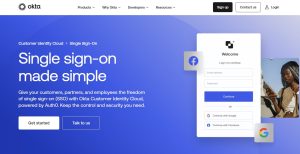
Okta is a cloud-based SSO solution known for its comprehensive feature set and robust security. It’s an excellent choice for businesses looking for a scalable and secure SSO solution.
- Pros: Okta offers a wide array of features; it’s scalable, secure, and user-friendly.
- Cons: Okta can be pricey for smaller businesses, and some features might be a bit tricky to set up.
2. Azure
Azure Active Directory is a cloud-based SSO solution from Microsoft is great for businesses already using Microsoft products.
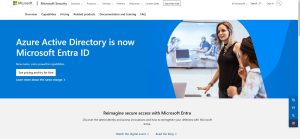
- Pros: Azure AD integrates seamlessly with other Microsoft services, it’s reasonably priced, and easy to use.
- Cons: Compared to other SSO solutions, it might lack some features. Also, larger businesses might find the setup somewhat complex.
3. OneLogin
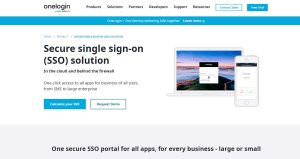
OneLogin is a versatile, cloud-based SSO solution that offers a range of features. It’s an ideal pick for businesses seeking a flexible and customisable SSO solution.
- Pros: OneLogin is adaptable and customisable, offers a broad spectrum of features, and is affordably priced.
- Cons: Setting up OneLogin can be complex, and some features may be hard to navigate.
4. Ping Identity
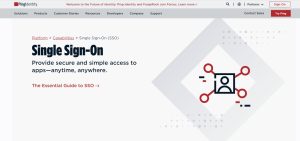
Ping Identity is a cloud-based SSO solution known for its wide range of features. It’s a solid choice for businesses prioritizing security and compliance.
- Pros: Ping Identity is secure and compliant, offers extensive features, and is scalable.
- Cons: It might be costly for small businesses, and some features could be complicated to set up.
5. Auth0
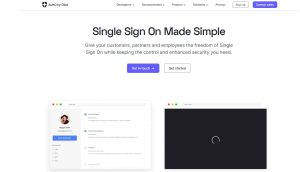
Auth0 is a cloud-based SSO solution that stands out due to its flexibility and scalability. It’s perfect for businesses that need an SSO solution to grow with them.
- Pros: Auth0 is flexible and scalable, comes with a wide range of features, and is easy to use.
- Cons: Auth0 can be expensive for smaller businesses, and some features might be difficult to use.
SSO in the Cloud
With the shift to cloud-based services, Single Sign-On is crucial. It simplifies access to cloud applications and offers flexibility, scalability, and cost-effectiveness. Integration with cloud applications is essential for a seamless experience.
Challenges in the Cloud
Managing access across multiple cloud applications, securing API integration, and ensuring compatibility with different cloud providers are challenges. Training and education are vital to ensure secure usage.
Why Built-in Cloud SSO is Valuable
Cloud providers like Microsoft Azure or Google Cloud Identity offer built-in SSO, reducing compatibility issues and simplifying user management for various applications.
When is SSO not effective in organisations?
Single sign-on is a security solution that allows users to log in to multiple applications and websites with a single set of credentials. This can save time and improve security for both employees and employers.
However, SSO is not always the right solution for all organisations. In some cases, it may not be effective or may create unnecessary challenges.
Here are some cases when SSO may not be effective in organisations:
- Organisations with a small number of users: The cost of implementing and managing an SSO solution may outweigh the benefits for organizations with a small number of users.
- Organisations with a limited budget: SSO solutions can be expensive, especially for small businesses.
- Organisations with complex IT environments: SSO can be difficult to implement and manage in organizations with complex IT environments.
- Organisations with legacy applications: SSO may not be compatible with all legacy applications.
In addition to these cases, SSO may also not be effective in organisations with a high turnover rate or organisations with a large number of remote workers.
Here are some additional challenges that Single Sign-On can create:
- Security risks: If an SSO solution is compromised, it can give attackers access to all of the applications and websites that are integrated with it.
- Complexity: SSO solutions can be complex to implement and manage, especially in large organisations.
- Cost: SSO solutions can be expensive, especially for small businesses.
- Compatibility: SSO solutions may not be compatible with all legacy applications.

Expert opinion
At Netcomp Solutions, we’ve seen how a tool called Single Sign-On benefits small and medium businesses in Australia. Think of SSO as a master key that opens all doors in a house. Instead of using different keys (or passwords) for each room (or online service), you just need one.
But it’s not always the perfect solution. Sometimes, a business might use a special kind of software that doesn’t work with this master key. Or, if someone untrustworthy gets hold of this master key, they could access all the rooms, which can be a risk.
Also, introducing SSO to a business needs careful planning. It’s like changing all the locks in your house—you need to think about who will have access, how secure the new locks are, and whether they fit all the doors.
If you are considering implementing SSO in your organisation, it is important to carefully weigh the benefits and drawbacks. You should also consider your specific needs and requirements. If you are not sure whether or not SSO is right for your organisation, I recommend that you consult with an IT security expert. Feel free to contact us at Netcomp Solutions. We’re here to help you understand and make the best choices for your business.
In conclusion…
So, in a nutshell, SSO is more than just a helpful tool – it’s a strong ally that can help keep your business safe and make things run more smoothly. We encourage you to dive deeper, find out more about the SSO options that suit your needs, and take steps to boost your business’s online security. Feel free to reach out to us to talk about your SSO needs and start your journey towards a safer and more efficient digital future. The online world is waiting, and SSO could be the key you need to unlock its full potential.

